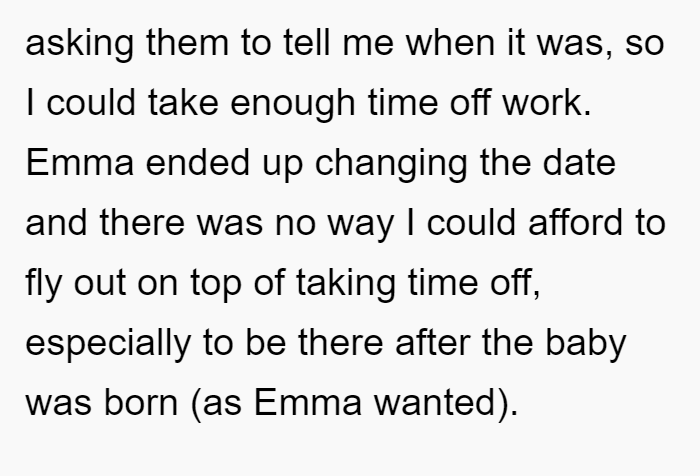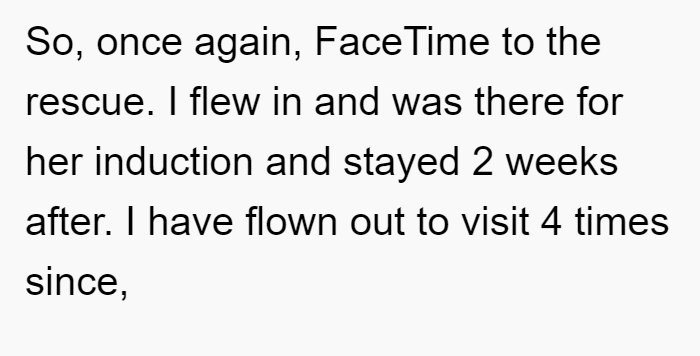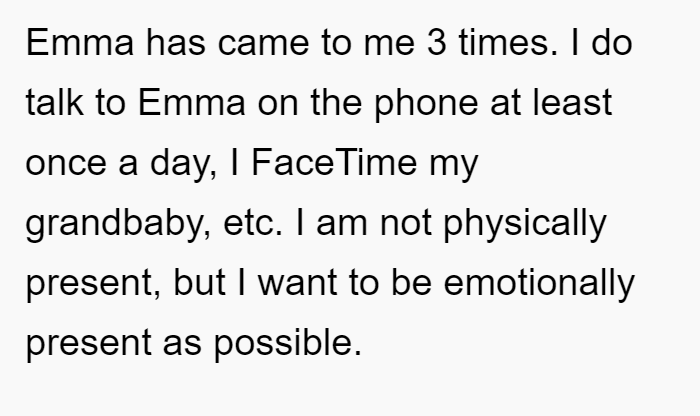
Am I the antagonist for asking my daughter what she thought would happen when she decided to start a family across the country?
In a complex family scenario, a mother, who has been diligently trying to maintain close relationships with both of her daughters despite geographical distances, finds herself at the center of a family dispute. The mother has two daughters: Emma, who lives across the country with her family, and Lizzie, who resides locally. Emma, now married with a young son, has required the mother’s support from afar due to the significant distance and financial constraints. Despite the challenges, the mother has made substantial efforts to be present in Emma’s life through FaceTime and occasional visits, acknowledging the limitations imposed by her work and financial situation.
On the other hand, Lizzie, who lives nearby, has enjoyed frequent physical support from their mother. The mother has been actively involved in Lizzie’s life, including helping with childcare and participating in significant family events. This close proximity has allowed the mother to be more physically present and engaged with Lizzie’s family, strengthening their bond.
During a recent visit from Emma and her family, the mother took the opportunity to spend quality time with her grandson and support Emma’s family. However, upon returning home, Emma expressed dissatisfaction with the level of involvement her mother has in her life compared to Lizzie’s. Emma felt that her mother’s involvement with Lizzie’s family was more significant and criticized the infrequency of her visits. The mother tried to explain her financial and time constraints but was met with a strong reaction from Emma, who perceived this as favoritism towards Lizzie’s child.
The situation escalated when the mother questioned Emma about her expectations of maintaining close relationships despite the distance. This led to a fallout where Emma, feeling hurt, chose not to engage in deeper discussions, and the mother’s ex-husband (Emma’s father) intervened, criticizing the mother for her response. The mother remains concerned about her daughter’s well-being and continues to seek ways to bridge the gap, though her efforts have been met with resistance.
This scenario highlights the challenges faced by families navigating long-distance relationships and the emotional complexities of perceived favoritism and support. Balancing the needs and expectations of both children while managing practical limitations remains a delicate task for the mother.
Read for more info Reddit

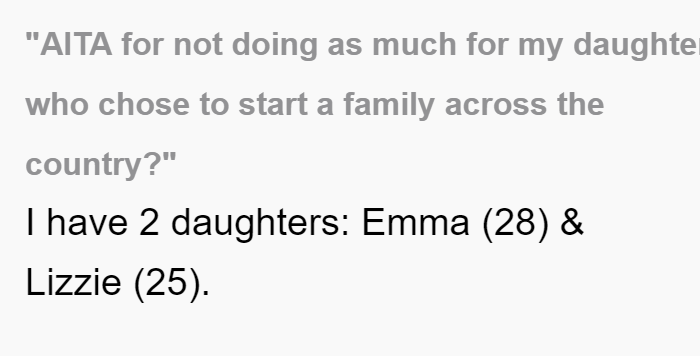
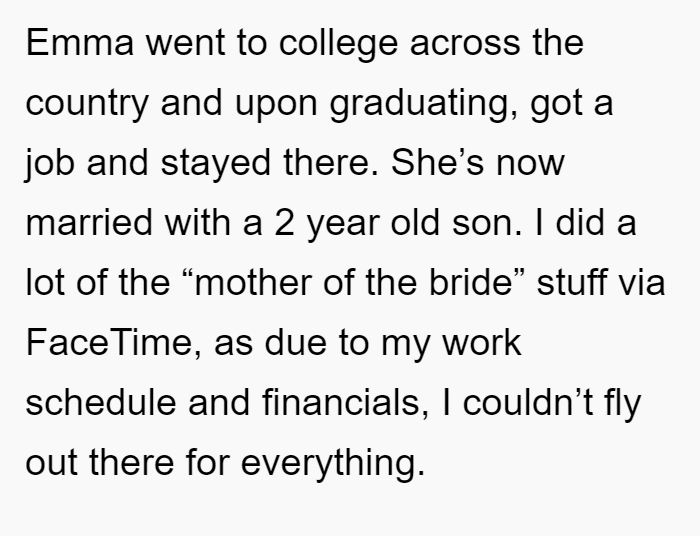

Image credits: Gisele Seidel (not the actual photo)

